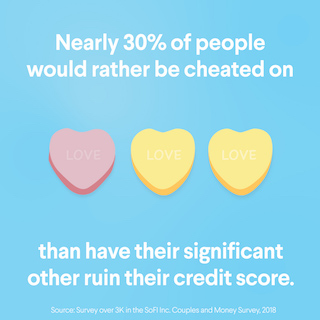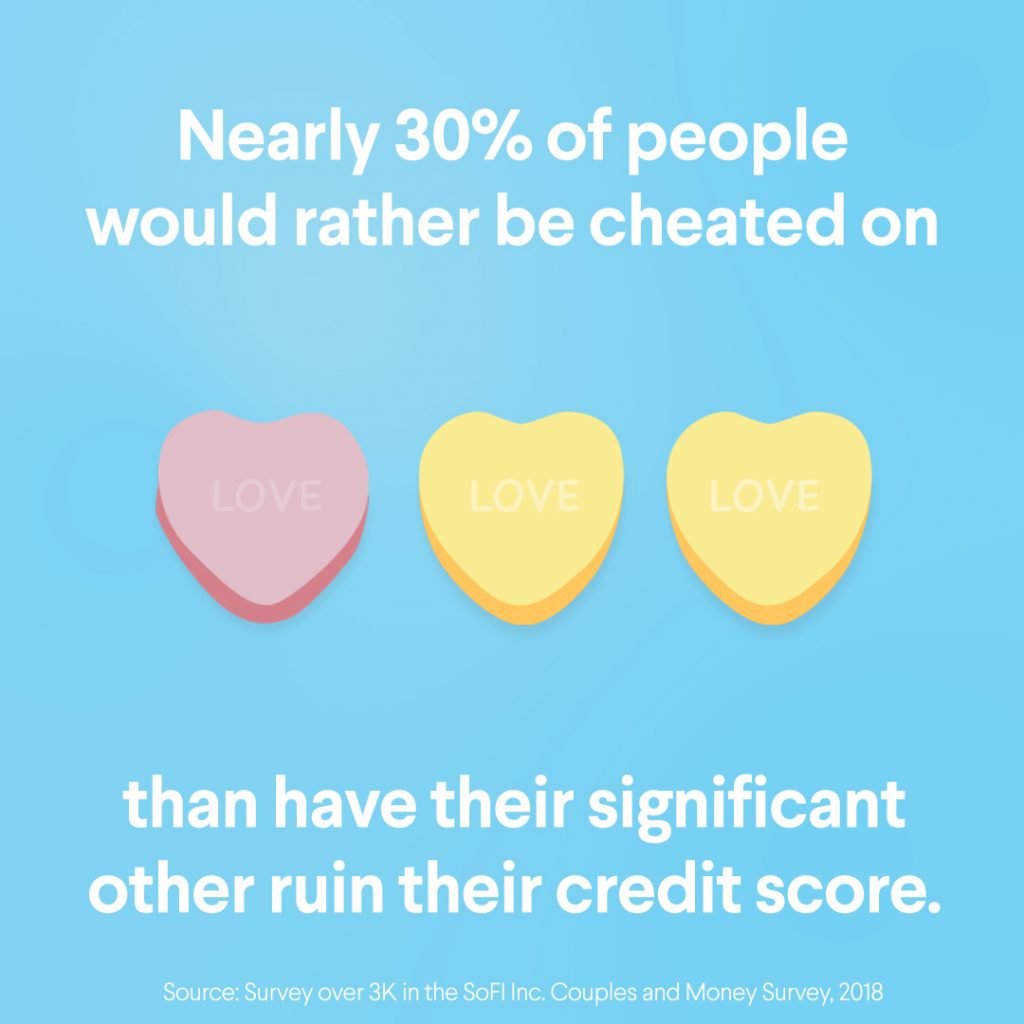Money, Love, and Pure Deception: How Couples Really Deal with Finances
They say falling in love leads to happily ever after. But when you throw money in the mix, that ending can get complicated.
Couples frequently have issues around finances, whether it’s about budgeting, debt, spending, or simply aligning on future goals. But how they deal with those issues can be a different story. While some fight and get it all out in the open, our recent survey on the topic suggests that plenty of couples prefer to keep their money troubles under wraps—including from their partner.
After surveying over 3,300 couples across the U.S. (ages 18-45), the SoFi team dug into the details of financial infidelity, and discovered which kinds of money-related experiences can cause even the most communicative of partners to keep their other half in the dark. Just in time for Valentine’s Day, here are a few eye-openers around money, love, and pure deception.
One in ten respondents admitted to keeping a secret bank account separate from their partner. Rather than be honest about their desire to have their own bank account, some would rather keep their significant other out of their finances entirely.
Another 14% admitted to snooping into their significant other’s financial situation behind their back. Seems like some partners may suspect that secret bank account—or worse. Rather than talking about it, a number of respondents would prefer to sneak around to learn about their partner’s money habits.
Nearly 30% of respondents would rather have their partner cheat on them than ruin their credit score. For nearly a third of couples, the price of a relationship is much lower than the price of financial stability.

Many (42%) have lied to their significant other about what something cost to avoid conflict. Since spending habits are such a fraught topic, a lot of partners resort making up falsehoods so that their partner doesn’t get mad at them.
But the majority (77%) who did fib only lied about only $250 or less. Small purchases, it seems, are easier to get away with.

Over one third of people would rather share their cell phone password than reveal their debt. A lot of respondents would feel more comfortable giving their partner access to their texts, photos, and browser history than disclosing how much debt they have.

But, of the couples that do talk about money, over 83% of respondents don’t regret combining finances with their partner. It’s not all love and war—of the couples that are open and honest about their finances, a large majority of them are totally OK with sharing their bank accounts, and fine with the fact that their partner can see into their money habits. Our conclusion? For couples worried about money, this might be the easier (and much less stressful way!) to go in the long run.
Try SoFi Checking and Savings®, a checking and savings account where you can spend, save, and earn! Sign up today.
SoFi can’t guarantee future financial performance.
This information isn’t financial advice. Investment decisions should be based on specific financial needs, goals and risk appetite.
The information and analysis provided through hyperlinks to third party websites, while believed to be accurate, cannot be guaranteed by SoFi. Links are provided for informational purposes and should not be viewed as an endorsement.
Neither SoFi nor its affiliates is a bank.
SoFi Checking and SavingsTM is offered through SoFi Securities, LLC, member FINRA / SIPC . Advisory services offered through SoFi Wealth, LLC, a registered investment advisor.
Source: Survey over 3K respondents in the SoFI Inc. Couples and Money Survey, 2018.
SoFi Lending Corp. or an affiliate is licensed by the Department of Financial Protection and Innovation under the California Financing Law, license number 6054612.






